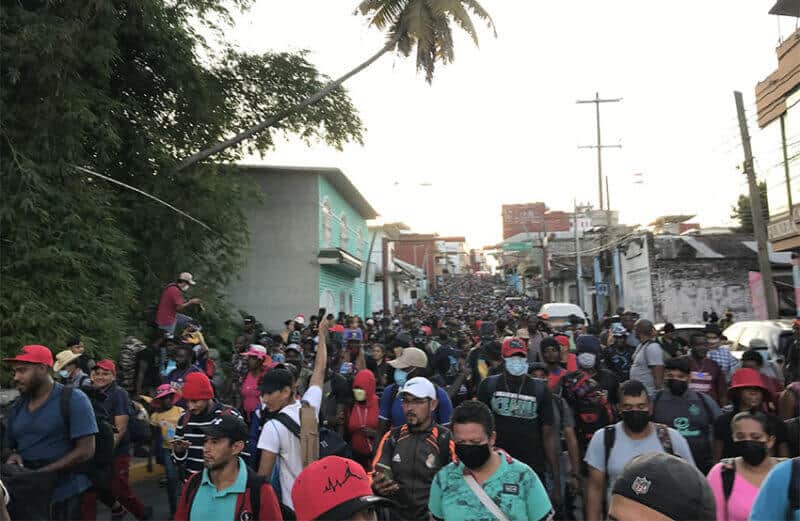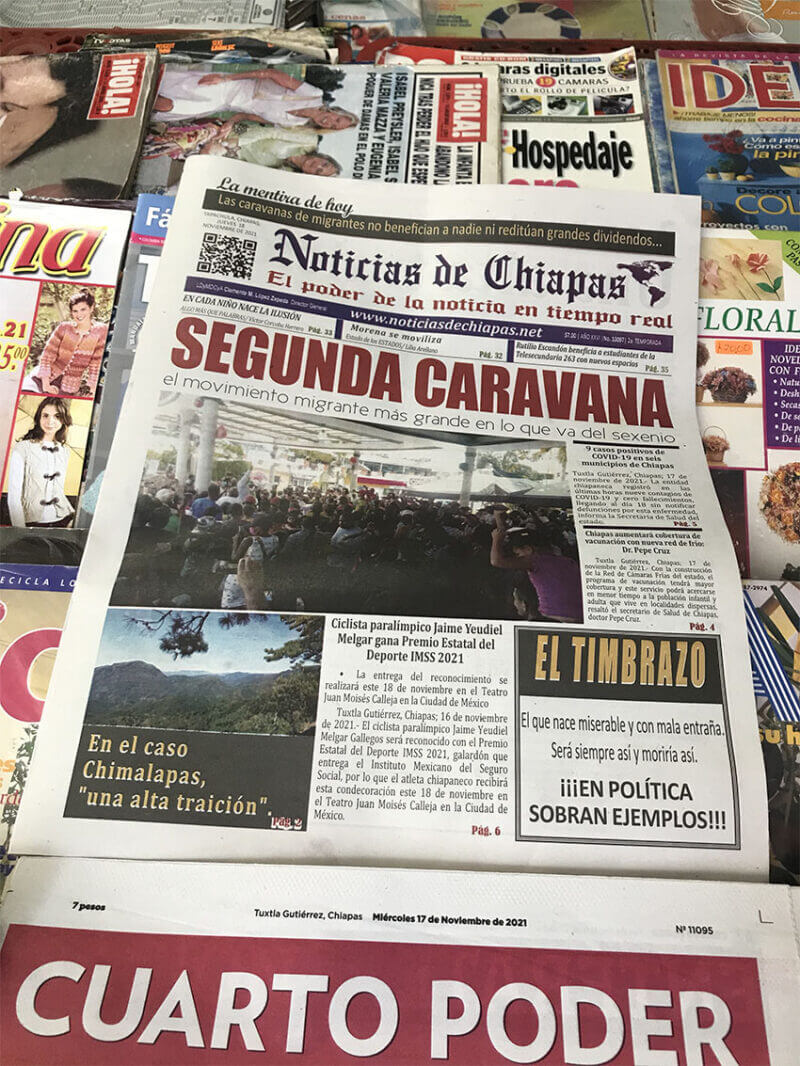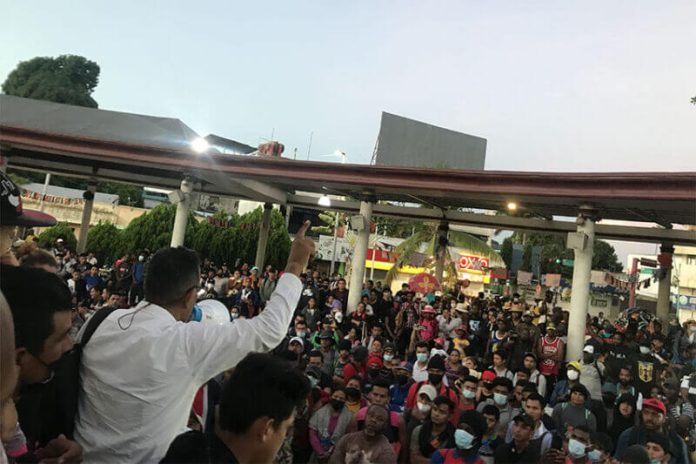A new 2,000-strong migrant caravan left Tapachula, Chiapas, on Thursday, and plans to catch up to another convoy in Veracruz, which left the border city 26 days ago.
The migrants congregated in Bicentenario Park at 6 a.m. to begin their northward journey and passed through the first immigration checkpoint at Viva México at about 9 a.m. to no resistance, the same place where National Guard officers in riot gear attempted to block the earlier caravan on October 23. The group hopes to reach Huehuetán on Thursday, 26 kilometers north.
The two convoys are demographically similar, with a wide range of ages, many children, pregnant women and some disabled people. However, there is one marked difference: Haitians, who did not march in large numbers on October 23, are the best represented nationality in the new caravan.
The Haitian contingent sang in French Creole and played Haitian music from speakers as they advanced. One Haitian woman, who was traveling with a child, manically screamed “Hallelujah” in Pentecostal prayer.
Among the convoy were migrants who were detained by security officials in the previous caravan. They alleged physical abuse by private security officials when they were detained near the Veracruz border, and said they were sent to the prison-like detention center in Tapachula, but later released.

Speaking on Tuesday, caravan leader Luis García Villagrán, a Mexican with the Center for Human Dignity, said President López Obrador’s claim, that migrants were treated well, was contradicted by the actions of federal agents.
“The president has said that in Mexico migrants are helped, they are protected, they are cared for and their human rights are not violated. But the National Guard and the National Immigration Institute (INM) do the opposite: they detain them, murder, and persecute girls, boys, women and men,” he said.
Pedro, a Venezuelan wearing a mask of President López Obrador, said low wages made staying in Venezuela impossible. “It hurts to abandon your country … but working for $4 I can’t put up with it … we’re going to work. We’re going to do what we couldn’t do in our countries,” he said.
A number of Haitians cited a lack of work opportunities as their reason for leaving Tapachula.
Meanwhile, the other caravan, now in Veracruz, stayed in Jesús Carranza on Wednesday, almost 500 kilometers from Tapachula. Only about 300 migrants remain in that group, according to the Veracruz state government, after the majority gradually turned themselves in to INM officials on the promise of humanitarian visas.

Tapachula is the modern Casablanca: a city flooded with migrants, desperately awaiting their papers, which may never arrive. There were a record 108,000 asylum applications made to the refugee agency COMAR from January-October, 80% higher than in the entire previous administration. Most of those applications were made in the city, near the Guatemalan border.
The legal status of migrants in the city is increasingly clouded: they have been banned from leaving while they await the outcome of their applications to COMAR and the INM. However, both agencies have buckled under the pressure of migrant influxes, leaving undocumented migrants waiting for responses to applications without any reliable time frame.
The INM has not responded to applications for residence for more than two years in some cases, the newspaper El Orbe reported.
The head of COMAR, Andrés Ramírez, said the agency was underfunded and had been overwhelmed, while critics have labelled Tapachula a “prison city.”
Mexico News Daily
